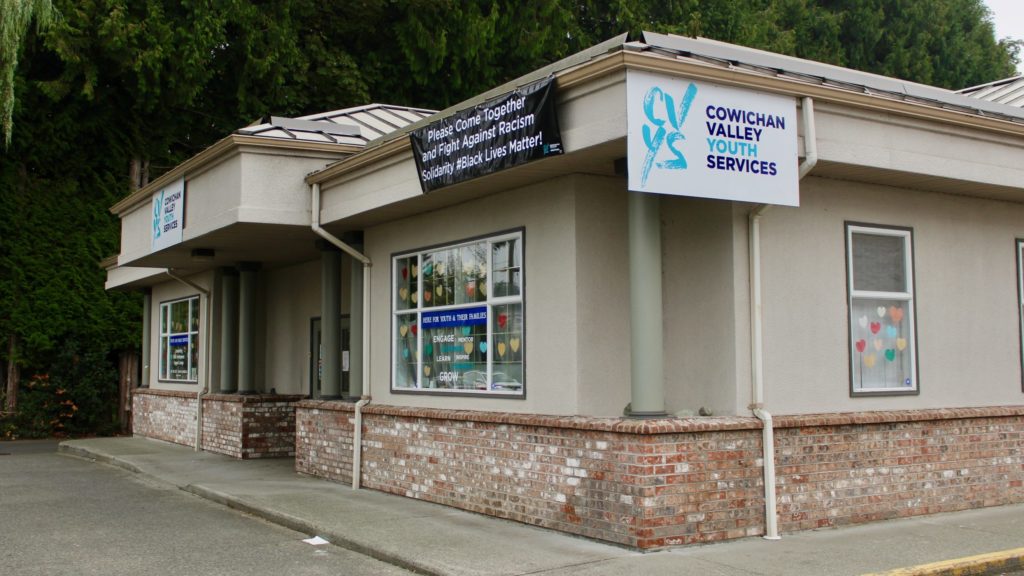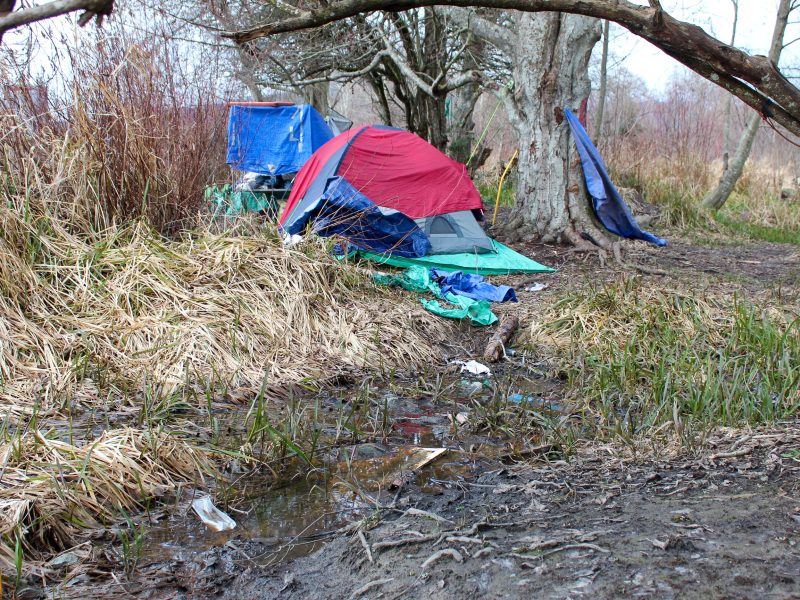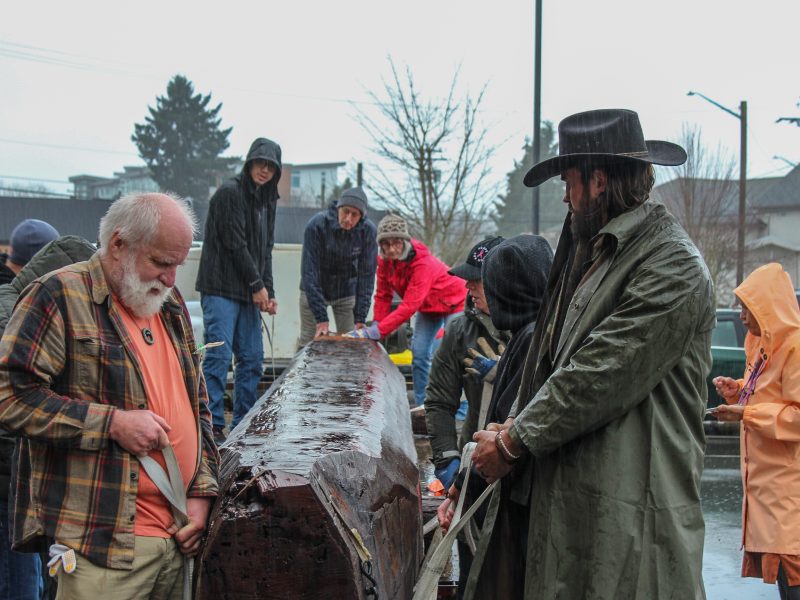
The stabbing death of a local 17-year-old boy early Monday morning in North Cowichan has left many people, especially youth, in shock. The victim has not been publicly identified, and neither has the alleged assailant, who was arrested at the scene and released on Tuesday. But their identities are known to many in the community.
In the wake of this tragedy, it’s important that those experiencing trauma or grief get the support they need, local experts say. This article contains advice for youth and parents in need of support. There is also a list of resources at the bottom.
School district responds at impacted schools
On Monday, the Cowichan Valley School District mobilized Critical Incident Response Teams at more than one school in response to the homicide. “We have had counselling support to a number of sites related to the incident to make sure that anybody impacted has available support,” says associate superintendent Tom Longridge. He declined to identify the schools with CIRT teams due to privacy concerns.
These internal teams of counsellors, staff and school officials are formed “anytime there is potential emotional, traumatic impact to any school community,” Longridge explains. He says that this can include events that happen to past students or faculty, such as earlier this winter when a 2020 Chemainus Secondary graduate was murdered in Ontario.
The district has reached out to families directly impacted by an incident to make sure they have a voice in what gets communicated, Longridge says. The district emailed a statement to parents Wednesday afternoon.
“I encourage that if anybody is experiencing any discomfort or anxiety or they see something within their children that they’re curious about that they contact the school principal or vice principal and let them know so that we can make sure we can support them,” Longridge says. “We advise people to not engage in social media if possible, and certainly not to take what’s expressed in social media as fact because quite often, that’s not the case.”
According to Longridge, it is an evolving situation and the district will continue to monitor it over time. He says. “We keep very clear communication between our schools and ourselves and our parent community to make sure if there’s anything else we need to be aware of and support, we’ll be able to do that.”
Advice for parents
Kerry Moon and Madi Innes are family counsellors at Cowichan Valley Youth Services (CVYS). When they spoke with The Discourse Cowichan Wednesday afternoon, they said that many of their youth clients had already reached out to them about the homicide.
“Right now this traumatic event is so large it’s all-consuming,” Moon says. She adds that a lot of youth are still in shock and are not necessarily grieving yet.
As a result, Moon advises parents to tread lightly. ”The biggest thing is not trying to fix it,” she says regarding the trauma and grief that youth may be experiencing.
Instead, she advises that parents just make themselves available, acknowledge that they know what happened, and ask youth what they need. Giving youth the space to express feelings and emotions sometimes is more important than having a lot of dialogue, she says. “Don’t fill it with words. Just be together.”
Moon adds that parents may need to access their own support to process their feelings and fears about the incident. “That way it’s not going to hinder how they’re going to be with their youth.”
There is no right or wrong response
Innes says that it’s important for youth and others to understand that whatever feelings or thoughts that come up in the wake of a traumatic event are okay.
“It doesn’t have to make sense, and it might not make sense, but it’s valid,” Innes says. “However you need to respond is also okay. Because with grief, and shock and trauma, there is no right way to feel or process.”
She also cautions that grief is a non-linear experience. ”Some of us will have all those feelings hit us at once. But sometimes it can take months before it really settles into our body and we are able to process it,” she says.
Innes says that grief and feelings of fear and confusion are also often experienced by people not closely impacted by a traumatic event such as Monday’s homicide.
“One of the things that I’ve noticed with the impact from recent events is that even if the youth is not closely friends with either person, it’s impacting them in some way,” Innes says. “We get very wrapped up in, ‘Oh, I shouldn’t be feeling like this because it didn’t really impact me,’ or, ‘I didn’t know them directly, so why should I be feeling this?’ Whatever you’re feeling is enough; you do not have to justify or explain.”
‘You’re not alone’
In normal times, according to Moon, it is common for some people processing a traumatic event to feel isolated or disconnected. These feelings can be exacerbated during the pandemic, so she says it’s important for youth and others to understand that support is available.
“I can’t express enough: you’re not alone,” she says. “So if that means you need to pop in to the school counsellor, you need to walk into CVYS, you need to call Youthspace, … try to reach out.”
Moon says that they anticipate getting referrals from school counsellors and family members in regard to the homicide. She says that while Cowichan Valley Youth Services always has a waitlist to get assigned a counsellor, their intake process triages referrals to prioritize those with the most immediate needs.
Moon and Innes say this traumatic event highlights the need for more mental health services for local youth. “We’re extremely limited in the Valley with services and COVID has put extra pressure on,” Innes says.
The following resource list was compiled with input from CVYS.
Crisis Lines:
- Vancouver Island Crisis Line (open 24/7)
- Youthspace (open 6 p.m. to midnight for Canadian youth under 30)
- Kids Help Phone (open 24/7 for Canadian youth)
- Here2Talk (open 24/7 for BC post-secondary students)
- KUU-US Crisis Line (open 24/7 for First Nations)
- BC Bereavement Helpline (open weekdays 9 a.m. to 5 p.m.)
Counselling and groups:
- BC Child and Youth Mental Health
- Cowichan Valley Youth Services (free counselling for youth 13-18 and their families
- Cowichan Family Life Association (affordable volunteer counselling and group services for all ages)
- Cowichan Hospice Grief Support
- Hiiye’yu Lelum – House of Friendship Youth Grief Group: (six-week program starting in March for youth 12-18 who have lost someone)
- Cowichan Valley Regional RCMP Victim Services (free support services for victims and witnesses of crime and traumatic events)
- Foundry BC (free virtual individual and group counselling for ages 12 to 24)
- BounceBack (Canadian Mental Health Association BC program with free virtual coaching and self-guided support for people 15 and over)
- Counselling BC list of local therapists in private practice who offer trauma and grief counselling [end]



